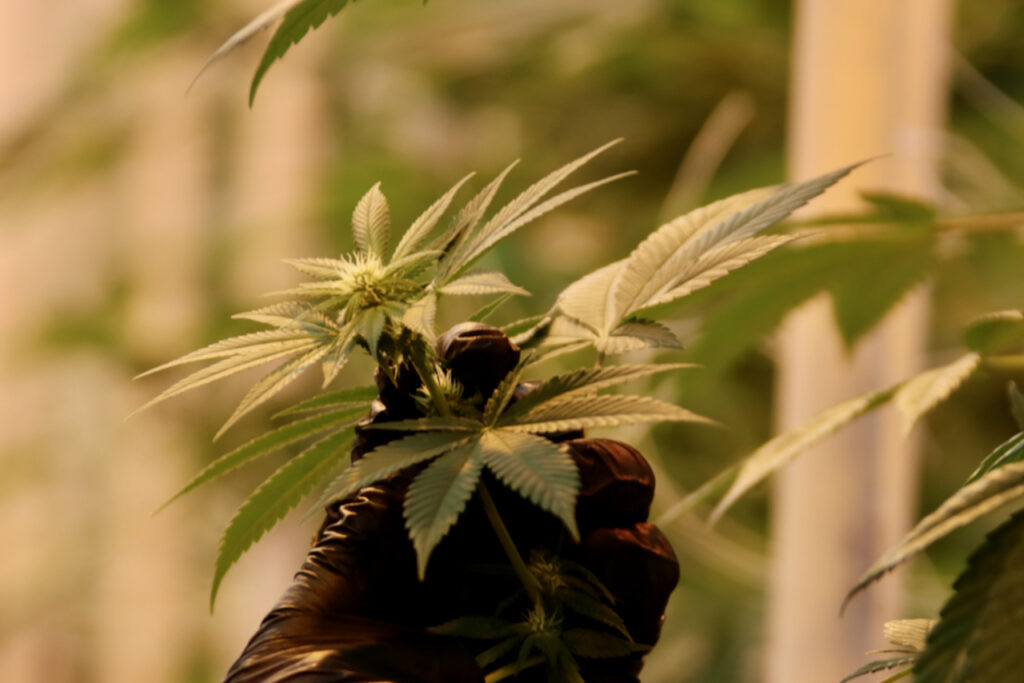
BY JANE BLOODWORTH ROWE
VIRGINIA BEACH — Those dreaming of farming hemp should think long and hard about it before making the investment.
That’s the advice of Virginia Beach Extension Agent Roy Flanagan and local hemp grower Brad Wynne, who spoke with the Virginia Beach Master Gardeners at the Meyera E. Oberndorf Central Library on Wednesday, Nov. 15.
“Hemp: the New Four-Letter Word” was the title of the talk, but it could be more accurately described as hemp’s boom and bust cycle, according to Flanagan.
The road to commercial hemp growing is filled with pitfalls, but the biggest obstacle right now is that the production exceeds the market, Wynne and Flanagan said.
“It’s 100 percent bust,” said Wynne, who noted that in 2020, 10 times more hemp was produced nationwide than the market could bear. Since then, production has declined, but Wynne doesn’t see the outlook improving.
“The reality is that hemp in Virginia is dead,” he said.
Wynne, owner of Veg Out Organics in Pungo, a 20-acre farm where he and his wife Katie grow hemp, is spared from the market glut because he grows hemp for cosmetics rather than for fiber, he said. They use the hemp in their own line of skin and body care products marketed online, nationwide and at some local shops.
Hemp is different from marijuana, though they are cultivars of the same species, said Flanagan. [Ed. — Flanagan is kin to John Doucette, editor of The Independent News.]
Marijuana is smoked or eaten for the purpose of getting high because it contains a high concentration of tetrahydrocannabinol, or THC, which is the primary psychoactive component. Industrial hemp contains less than 0.3 percent of THC, or not enough to produce a high. It does contain cannabidiol, or CBD, but is said not to be psychoactive.
Industrial hemp, which was used in textiles, foods, skin care products and building products, was widely grown in this country in the 18th and 19th centuries but was outlawed during the 1930s. As attitudes shifted, it was legalized in the 2018 Farm Bill. Virginia had already created an industrial hemp research program in 2015, and a second phase of research began after the passage of the Farm Bill, Flanagan said.
The legalization spawned a flood of interest in growing it commercially, and Flanagan, who worked with growers in Chesapeake and Virginia Beach, said that many who attended initial meetings “had never grown anything.”
Some knew very little about either growing or marketing crops, and many planned to grow hemp in their backyards with no understanding of how to attract buyers.
The situation was complicated because hemp production is a learning process for everyone because of the industry’s short history. Growers learned that hemp dislikes wet, clay soils and is susceptible to disease and insects. Insects can be particularly tricky to deal with because chemical insecticides are problematic, particularly if the crop is going to be used for skincare, and there were no firm guidelines about which chemicals were safe to use.
Wynne, whose farm is certified organic by the U.S. Department of Agriculture, advised that consumers research carefully before buying a skincare product that contains CBD and ask to see a certificate of analysis. There’s a need for stricter regulations surrounding the sale of hemp products, but until some are put in place, he said, “it’s 100 percent buyer beware.”
Hemp production has declined since the boom year of 2020, and Wynne said that he usually advises potential growers not to get into it. He would like to see more consideration given to growing hemp for paper production, he said, because a crop of hemp can be produced much more quickly than trees.
Flanagan said that the University of Kentucky and North Carolina State University have been at the forefront of hemp research and suggested that those who want more information can visit their websites for more information.

© 2023, 2024 Pungo Publishing Co., LLC

